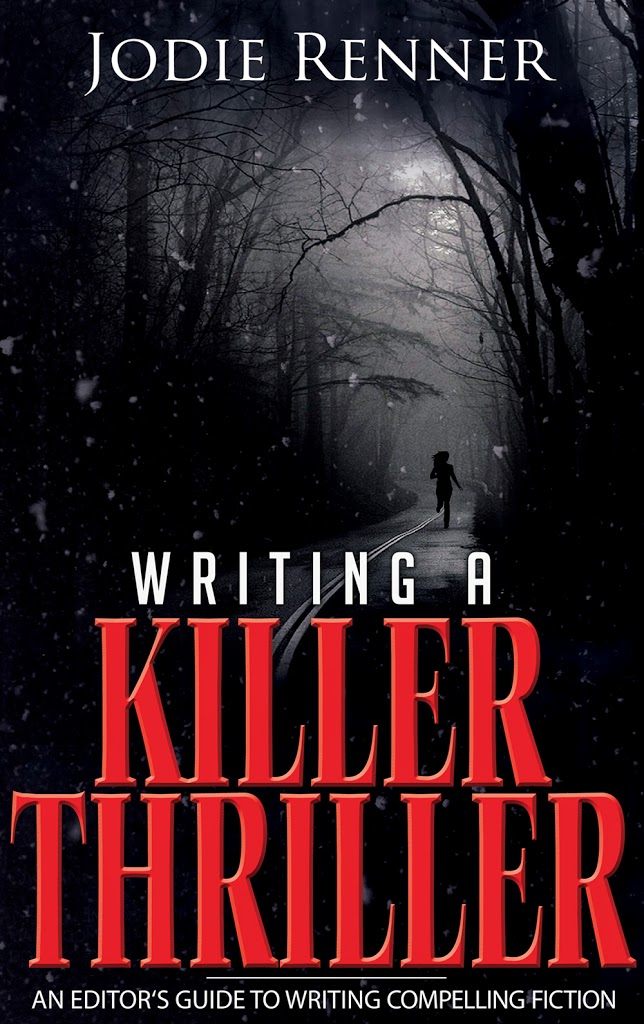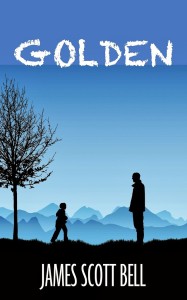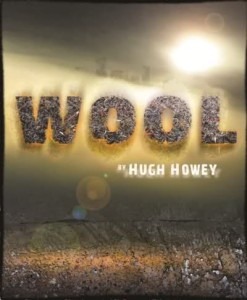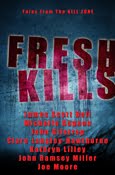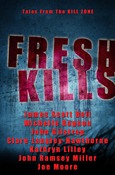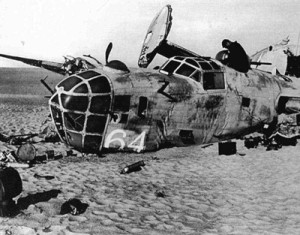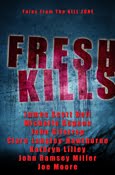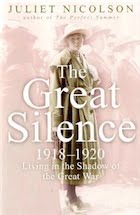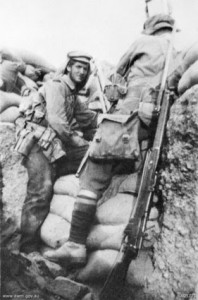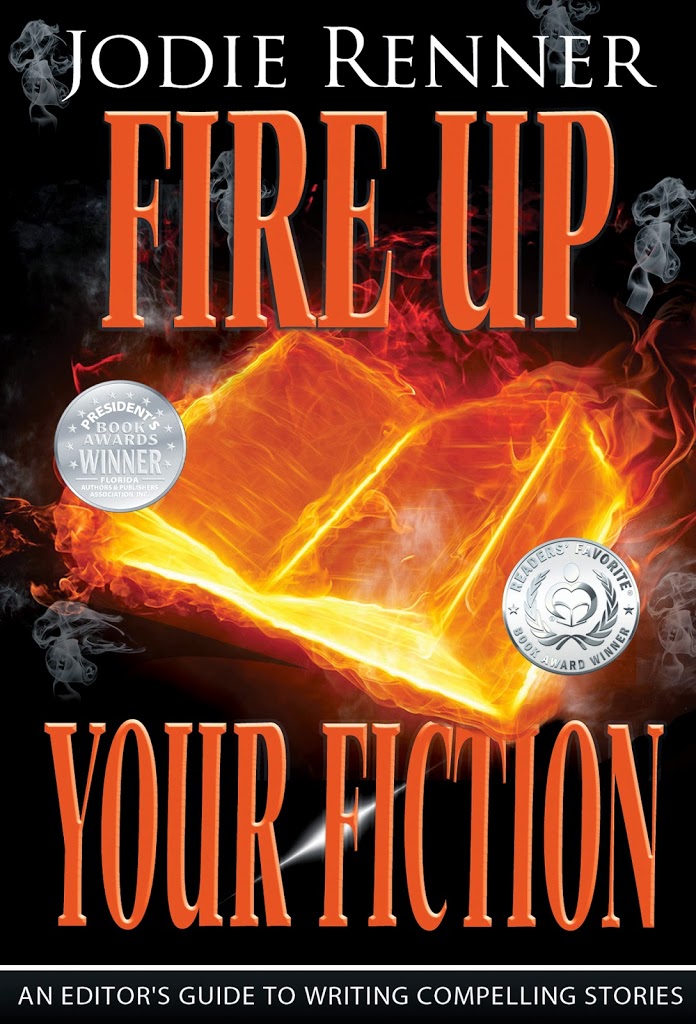 Jodie Renner, editor & author, @JodieRennerEd
Jodie Renner, editor & author, @JodieRennerEd
Writing short stories is a great way to test the waters of fiction without making a huge commitment, or to experiment with different genres, characters, settings, and voices.
And due to the rise in e-books and e-magazines, length is no longer an issue for publication, so there’s a growing market for short fiction. You can submit your short stories to anthologies, magazines, and contests, or publish a collection of three or four of your stories yourself in a short anthology. Or even one really good story, and price it at 99 cents. You can also get together with other authors in your genre and each contribute a story for an anthology, as did Kill Zone authors in 2010, with Fresh Kills, Tales from The Kill Zone. Time for another collection, I’d say, wouldn’t you? (Nudge, nudge.)
In fact, it’s a good idea to try to publish a few high-quality, well-edited short stories between novels to help with discoverability and growing a fan base.
Also, today’s busy readers (especially the young ones) have more distractions and temptations for their time, therefore shorter attention spans, so a short story is a nice escapism-byte for increasing numbers of people, I think.
I’ve judged short stories for several contests and anthologies, including for Writer’s Digest, and I’ve come up with some tips for writing a compelling short story that is worthy of publishing or submitting to contests, magazines, and anthologies. Of course, these are only guidelines—like any good cook with a recipe, you’ll tweak them to suit your own vision, goal, and story idea.
PLANNING STAGE:
1. Keep the story tight. Unlike a novel or even a novella, a short story is about just a small slice of life, with one story thread and one theme. Don’t get too ambitious. It’s best to limit it to one main character plus a few supporting characters, one main conflict, one geographical location, and a brief time frame, like a few weeks maximum—better yet, a few days, or even hours or minutes.
2. Create a complex, charismatic main character, one readers will care about. Your protagonist should be multi-dimensional and at least somewhat sympathetic, so readers can relate to him and start bonding with him right away. He should be charismatic, with plenty of personality, but give him a human side, with some inner conflict and vulnerability, so readers identify with him and start worrying about him immediately. If readers don’t care about your character, they also won’t care about what happens to him.
3. Give your protagonist a burning desire. What does she want more than anything? This is the basis for your story goal, the driving force of your story.
4. Decide what your character is most afraid of. What does your hero regret most? What is his biggest fear? What is he most afraid might happen? Give him some baggage and secrets.
5. Devise a critical story problem/conflict. Create a main conflict or challenge for your protagonist. Put her in hot water right away, on the first page, so the readers start worrying about her early on. No conflict = no story. The conflict can be internal, external, or interpersonal, or all three, against one’s own demons, other people, circumstances, or nature.
6. Develop a unique “voice” for this story by first getting to know your character really well. A good way is to journal in his voice. Pretend you are the character, writing in his secret diary, expressing his hopes and fears and venting his frustrations. Just let the ideas flow, in his point of view, using his words and expressions. Then take it a step further and carry that voice you’ve developed throughout the whole story, even to the narration and description, which are really the character’s thoughts, perceptions, observations and reactions. (In a novel, the voice will of course change in any chapters in other characters’ viewpoints.)
7. Create an antagonist and a few interesting supporting characters. Give each of your characters a distinct personality, with their own agenda, hopes, accomplishments, fears, insecurities and secrets, and add some individual quirks to bring each of them to life. Supporting and minor characters should be quite different from your protagonist, for contrast.
8. To enter and win contests, make your character and story unique and memorable. Try to jolt or awe the readers somehow, with a unique, charismatic, even quirky or weird character; a unique premise or situation; and an unexpected, even shocking revelation and plot twist.
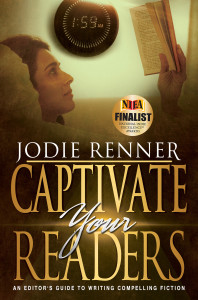 9. Experiment – take a chance. Short stories can be edgier, darker, or more intense because they’re short, and readers can tolerate something a little more extreme for a limited time.
9. Experiment – take a chance. Short stories can be edgier, darker, or more intense because they’re short, and readers can tolerate something a little more extreme for a limited time.
WRITING STAGE:
10. Start right out in the head of your main character. It’s best to use his name right in the first sentence to establish him as the point-of-view character, the one readers are supposed to identify with and root for. And let readers know really soon his rough age and role in the story world.
11. Put your character in motion right away. Having her interacting with someone else is usually best—much more dynamic than starting with a character alone, musing. Also, best not to start with your character just waking up or in an everyday situation or on the way to somewhere. That’s too much of a slow lead-up for a short story—or any compelling story, for that matter.
12. Use close point of view. Get up close and personal with your main character and tell the whole story from his point of view. Show his thoughts, feelings, reactions, and physical sensations. And don’t show anyone else’s thoughts or inner reactions. You don’t have time or space to get into anyone else’s viewpoint in a short story. Even the narration is your POV character’s thoughts and observations. Don’t intrude as the author to describe or explain anything to the readers in neutral language.
13. Situate the reader early on. Don’t forget the 4 W’s: who, what, where, when. Establish your setting (time and place) within the first few paragraphs, to situate your reader and avoid confusion. But as mentioned above, avoid starting with a great long descriptive passage.
14. Jump right in with some tension in the first paragraphs. There’s no room in a short story for a long, meandering lead-up to the main problem, or an extended description of the setting or the characters and their background. Disrupt the main character’s life in some way on the first page. As Kurt Vonnegut advises, start as close to the end as possible.
15. Show, Don’t Tell. Don’t use narration to tell your readers what happened—put them right in the middle of the scene, with lots of dialogue and action and reactions, in real time. And skip past transitional times and unimportant moments. Just use a few words to go from one time/place to another, unless something important happens during the transition.
16. Your character needs to react! Show your character’s emotional and physical reactions, both inner and outer. And to bring the character and scene to life on the page, evoke as many of the five senses as possible or appropriate, not just sight and hearing.
17. Every page needs tension of some sort. It might be overt, like an argument, or subtle, like inner resentments, disagreements, questioning, or anxiety. If everybody is in agreement, shake things up a little.
18. Dialogue in fiction is like real conversation on steroids. Skip the yadda-yadda, blah-blah, and add spark and tension to all your dialogue. And make the characters’ words and expressions sound as natural and authentic as you can. Each character should speak differently, and not like the author. Read your dialogue out loud or role-play with a friend to make sure it sounds real and moves along at a good clip.
19. Build the conflict to a riveting climax. Keep putting your protagonist in more hot water until the big “battle,” showdown, or struggle—whether it’s physical, psychological, or interpersonal.
20. Go out with a bang. Don’t stretch out the conclusion – tie it up pretty quickly. Like your first paragraph, your final paragraph needs to be memorable, and also satisfying to the readers. Try to create a surprise twist at the end – but of course it needs to make sense, given all the other details of the story.
21. Provide some reader satisfaction at the end. It’s not necessary to tie everything up in a neat bow, but do give your reader some sense of resolution, some payout for their investment of time and effort in your story. As in novels, most readers want the character they’ve been rooting for all along to resolve at least some of their problems. But be sure the protagonist they’ve been identifying with succeeds through their own courage, determination, and resourcefulness, not through coincidence, luck, or a rescue by someone else.
REVISION STAGE:
22. Hook ’em in right away. Now that you’ve got your whole story down, go back and grab the readers with an opening that zings. Write and rewrite your first line, opening paragraph, and first page. They need to be as gripping and as intriguing as you can make them, in order to compel the readers to read the rest of the story. Your first sentence and paragraph should arouse curiosity and raise questions that demand to be answered.
23. Cut to the chase! The short story requires discipline and editing. Trim down any long, convoluted sentences to reveal the essentials. Less is more, so make every word count. If a sentence or line of dialogue doesn’t advance the plot, add intrigue, or develop a character, take it out.
Also, use strong, evocative, specific nouns and verbs and cut back on supporting adjectives and adverbs. For example, instead of saying “He walked heavily” say “He trudged.” Or instead of “She walked quietly into the room,” say “She tiptoed…”
24. Make every element and every image count. Every element you insert in the story should have some significance or some relevance later. If it doesn’t, take it out. You have no room for filler or extraneous details in a compelling short story. In fact, try to make all descriptions do double duty. Rather than listing their physical attributes and what they’re wearing, your description of a character should reveal their personality, their mood, their intentions, and their effect on those around them, and also the personality and attitude of the character who is observing them.
25. Pay attention to word count and other guidelines. Short stories are generally between 500 and 7,500 words long, with the most popular length around 2,500 to 4,000 words. If you want to submit your short story to a website, magazine or contest, be sure to read their guidelines as to length, genre, language, etc. Also, for your own protection, do read the fine print to avoid giving away all rights to your story.
For some great insights on creating a compelling short story, see James Scott Bell’s post here on TKZ, How to Write a Short Story. And check out Anne R. Allen’s great posts on the subject, such as “Why You Should be Writing Short Fiction.” Also, if you’re fairly new at writing short stories and would like more guidance, see my recent post, Some Quick, Basic Tips for Writing a Riveting Short Story. (Click on the titles.)
Do you have any suggestions to add to this list?
